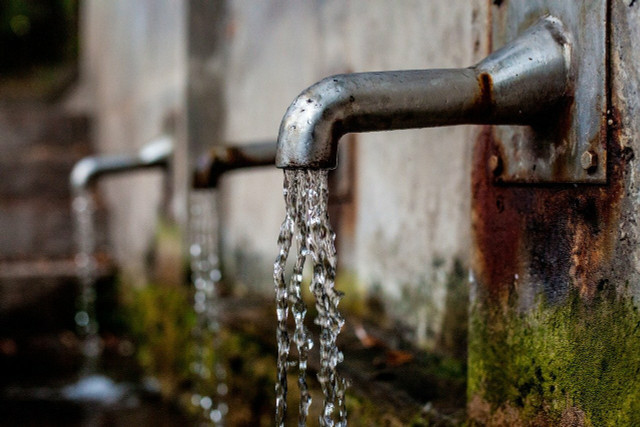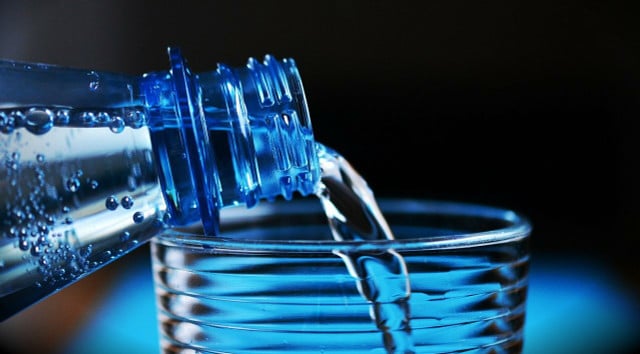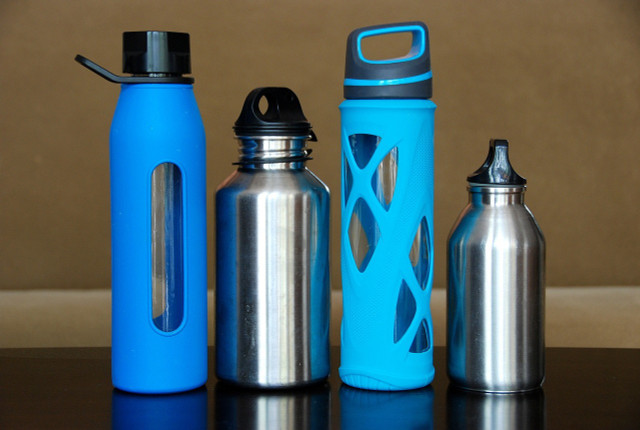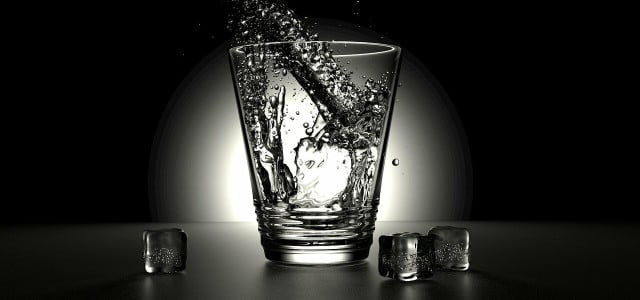What is the difference between distilled water and spring water? Water can be found in various forms, from mineral, spring, distilled, and more. This article outlines two important types: distilled water vs. spring water.
In most parts of the US, we are fortunate enough to have safe, filtered water directly from our taps. Despite this, many offices, gyms, restaurants, and grocery stores offer a long list of options when it comes to water. How complicated can the differences between H2O get? This article explains two categories of water you should know: distilled and spring water.
What is Spring Water?

(Foto: CC0 / Pixabay / 3345408)
Spring water is derived from underground aquifers and springs which intersect with a water source at or below the earth’s water table. It is purported to go through its own natural filtration system where it is filtered by a combination of rock, soil, clay, and microorganisms. In these processes, potential contaminants such as debris, bacteria, other microbes, and heavy metals are removed from the water and all that’s left is trace mineral content such as calcium and magnesium. Due to this filtration mechanism, spring water is said to taste ‘fresher’ and ‘crisper.’ It may also contain small amounts of electrolytes such as sodium and potassium.
While spring water goes through its own natural filtration process, this does not ensure that it is safe to drink directly from the source and without further filtration. The quality of the local groundwater system can offer an indicator of the quality of the spring, but there can still be contaminants – from industrial and agricultural pollutants to animal feces – that may have you think twice before trying the ‘raw water’ trend.
The water that supplies the underground aquifer, the kinds of rocks the water comes in contact with, and the length and path of the underground water are all factors which influence the amount of minerals and other debris the spring water can dissolve and the quality of the spring. Many springs in the US have piping dug into them to make the water more accessible. Unfortunately, this can contribute to contamination as some metals can leach into the water. Despite the natural filtration process spring water goes through, the United States Environmental Protection Agency (EPA) states there is always a possibility for contamination, so exercise caution when choosing to drink spring water directly from the source.
What is Distilled Water?



(Foto: CC0 / Pixabay / congerdesign)
Distilled water is more purified than spring water: the water is boiled, steamed, then condensed back into a liquid in order to remove impurities and minerals at various temperatures. Distilled water differs from mere filtered water in that the former lacks any dissolved materials like minerals while the latter may contain some of these. It is most often meant for use when purity is important, such as for medical use, in labs, or in humidifiers and irons.
Distilled water is not commonly meant for drinking, though it is relatively safe to drink. It’s also said to have a ‘flat’ taste from its lack of mineral content. This water will not provide you with calcium and magnesium, which you can get from tap water.
Additionally, distilled water can actually pull minerals from whatever it touches, so it may leach small amounts of minerals from your body. Because of this, some people claim this kind of water is bad for you. However, as long as you eat an appropriate diet, you can probably still drink distilled water and retain a healthy amount of minerals. However, distilled water may also leach harmful substances such as chemicals from plastics.
If you happen to use distilled water at home, take a look at this step-by-step guide on how to distill water.
Distilled Water vs. Spring Water: Which is Better for You?
In short, drinking distilled water is not recommended unless you don’t have access to safe tap water in your area.
While spring water is superior for drinking, other purified waters are beneficial for their removal of toxic metals and other substances. If you want, it’s possible to add trace minerals (such as these from Amazon**) to your distilled water to get what you would otherwise be getting from spring water. You can not get spring water from tap water, but you can get a similar quality with the use of trace minerals.
As illustrated above, there are some risks involved in consuming untreated spring water. However, this is probably the ‘healthiest’ kind of water you can drink because of the possibility for consuming naturally occurring minerals and electrolytes.
Alas, most spring water which is accessible for safe drinking can only be found in the form of bottles in supermarkets. As we all know, bottled water has a detrimental environmental impact. In order to consume responsibly, we recommend never purchasing bottled water unless there are no other options for safe drinking water. If you still wish to consume spring water, you may be able to find water suppliers in your region that deliver safe, drinkable spring water with reusable 5-gallon jugs to your door.
Sustainable Solutions to Plastic Bottled Water



(Foto: CC0 / Pixabay / NatureFriend)
While grocery stores offer endless bottled water options, ranging from spring, distilled, purified, mineral to flavored, and more, we should know better than to take part in this environmentally exhaustive practice. Drinking bottled water, especially from plastic bottles, contributes to unnecessary waste. While many people in the world do not have the luxury of drinking water from the tap, in most regions in the US, it is safe to drink tap water. If you have a desire to use purified or spring water, there are other solutions that do not involve using single-use plastics or other resources unnecessarily.
- It’s possible to have purified and spring water delivered in many regions in the country. Find a local water servicer in your region and inquire if they might be compatible with your unique needs. These companies of course have cycles where they provide you with new jugs of water when yours run out and clean the ones they take back from you for the next use.
- Alternatively, some grocery stores offer various kinds of purified water stations where you can bring your bottles and other water containers to fill while grocery shopping.
- Another option is to install a filtration system in your home. There are easy and quick water filtration mechanisms such as those you can attach to your tap (like this one from Amazon**) and water jugs with filters (like this one, also from Amazon**).
- For water on the go, avoid buying single-use water bottles. The options for reusable water bottles are endless and – depending on where you live – you can simply fill them from your tap.
While fears of contaminated tap water have been (rightfully) raised after the Flint Michigan crisis, this need not direct you to use single-use water bottles. Instead, either use your own tap water with some sort of filtration mechanism, fill up with filtered water at the grocery store, or use your local water servicer for spring water or purified water. And always use reusable water bottles, jugs, and containers.
Read More:
- How to Clean Your Water Bottle: Keeping Your Reusable Bottle Germ-Free
- Water Conversation: 10 Tips on How to Save Water at Home
- Life Without Plastics: Easy Tips for Everyone
Important Information regarding Health-related Topics.
** Links to retailers marked with ** or underlined orange are partially partner links: If you buy here, you actively support Utopia.org, because we will receive a small part of the sales proceeds. More info.Do you like this post?






